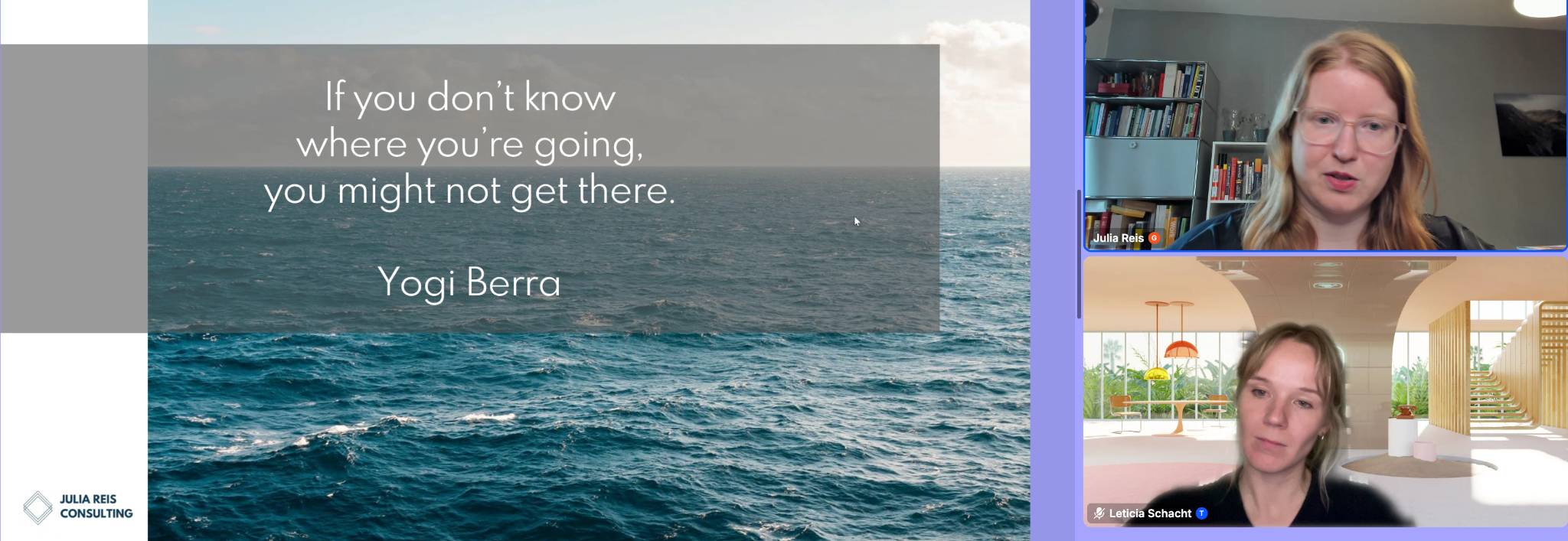Why OKRs fail – and what you can do about it
OKRs are one of the most popular and effective frameworks for setting ambitious, aligned goals in modern organisations. Yet many teams that try them abandon the method after just a few cycles. Why?
At a recent Leapsome Learning Session, Julia shared her insights into why OKRs fail – and what you can do to make them work for your team.

What are OKRs – and why do they work?
OKRs (Objectives and Key Results) are designed to help teams focus on what matters most, align around shared priorities and track progress transparently. Done well, they foster ambition, clarity and accountability. But too often, the right conditions aren’t in place.
Three reasons why OKRs fail
1️⃣ Missing (cultural) foundations
Even well-written OKRs will fail if the cultural and methodological groundwork isn’t in place. Without leadership buy-in, psychological safety and a willingness to reflect and learn from missed targets, OKRs often become just another check-the-box exercise. Defining valuable OKRs is not trivial, so your teams need to understand the basics of how this method works. Fear of failure and a lack of transparency can further undermine the whole process.
✅ What you can do:
- Ensure leadership understands and endorses the OKR mindset
- Provide training and context for teams new to OKRs and ensure the “Why of OKRs” is clear to everyone
- Celebrate ambitious goals, even when not fully achieved
- Foster openness and reflection on what worked and what didn’t
2️⃣ The wrong mindset: Confusing OKRs with KPIs or performance management
One of the most common mistakes is treating OKRs as a performance management tool. When individual bonuses, salaries or performance reviews are directly tied to OKRs, people tend to play it safe by setting low, achievable goals rather than ambitious ones. OKRs are meant to be a team commitment to focus and learning, not a way to evaluate individual performance.
KPIs, on the other hand, are best used to measure steady operational performance, not to inspire stretch or learning goals.
✅ What you can do:
- Encourage ambition by decoupling OKRs from individual appraisals - don’t connect OKRs to decisions about bonuses or promotions
- Use KPIs to track your overall company or team health and performance, and OKRs to stretch into new territory
- Frame OKRs as a collective goal-setting process, not a task list
3️⃣ Lack of structure and accountability
OKRs require more than just setting goals at the start of the quarter and forgetting them. Without clear ownership, regular check-ins and a transparent way to track progress, it’s easy for OKRs to slip off the radar.
✅ What you can do:
- Assign clear roles (e.g., OKR Master, KR Owners)
- Build in regular rituals like OKR planning, weekly check-ins, reviews and retrospectives
- Use a simple, visible tool to track progress and confidence scores (like Leapsome 😉or start out with a simple spreadsheet)
- Keep the process lightweight but consistent
.png)
Ready to make OKRs work for your organisation?
We help organisations implement OKRs that stick – and that support your strategy and culture. Whether you’re just getting started or want to improve your existing process, we offer:
- OKR Kick-Off Package: Get your team aligned and started with confidence
- OKR Master Training: Equip your internal OKR champions with the knowledge they need
- OKR Sparring Sessions: On-demand support and coaching throughout your OKR cycles
Feel free to contact us to learn more.

